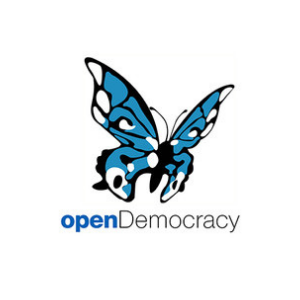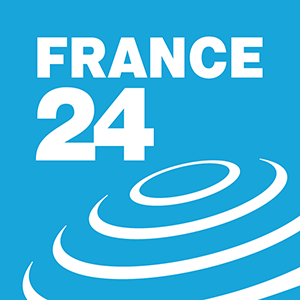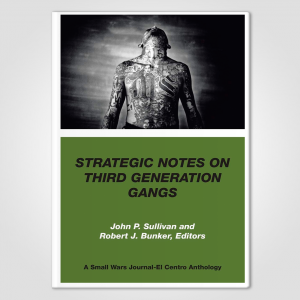
What Cities Can Learn from Venture Capital
If cities are where the future happens first, then the future came early to Bogota

If cities are where the future happens first, then the future came early to Bogota

Maps are not just informative, they are empowering

Cities around the world are getting smarter.

Last year, Ian Goldin of the University of Oxford and Robert Muggah, a Brazil-based policy analyst, also released Terra Incognita: 100 Maps to Survive the Next Hundred Years

Robert Muggah contributed to this report that aims to campaign to halve violence by 2030 with cities around the world.

Bolsonaro’s administration is largely responsible for all of this chaos, which has killed 270,000 Brazilians.

When Brazilian President Jair Bolsonaro repeatedly downplayed the threat of COVID-19, Brazilians were understandably confused about the gravity of the pandemic.

The COVID-19 pandemic could give rise to positive innovations in cities and a radical intolerance of the status quo

Cities are the crucible of our civilisations

This is the startling observation made by authors Ian Goldin and Robert Muggah in the introduction to their fascinating new book, Terra Incognita

Maps are not just informative, they are empowering. They can help provide a new perspective to age-old problems

Around the world, responses to the first and second waves of the COVID-19 pandemic are understandably focused on reducing infections and fatalities.

The COVID-19 pandemic is a profoundly urban crisis. The vast majority of the millions of reported cases worldwide are concentrated in overcrowded neighbourhoods and informal settlements.

One of the first countries to register a Covid-19 outbreak, South Korea, flattened the curve in stunning fashion. It registered over 22,000 cases, yet fewer than 400 deaths at the time of writing.

We can give people a better sense of what’s happening around them at a time of extreme confusion and a motivation to act. Because ultimately, the future is what we make it, says ‘Terra Incognita’ co-author Dr Robert Muggah.

Robert Muggah (apparently an old Scottish name, though he is Canadian) has set up two think-tanks in Brazil, where he is based: the SecDev Group focuses on the digital economy and cybersecurity.

As we show in our new book Terra Incognita, COVID-19 is exacerbating multiple forms of inequality within and between countries and cities, and raising fundamental questions about the future of urban living.

During the first half of 2020 when more than two-thirds of the world’s population was in lockdown, many of us were transfixed by a map.

As explained in my new book with Ian Goldin – Terra Incognita: 100 Maps to Survive the Next 100 Years – maps can help make sense of the world around us.

The coronavirus pandemic is exposing the quality of governments around the world. Many national leaders have failed the test—in contrast to the leaders of regions and cities

Having ravaged some of the world’s wealthiest cities, the coronavirus pandemic is now spreading into the megacities of developing countries.

Head of Igarape Institute in Rio de Janeiro gives us more on the absurd situation in Brazil, due to the lack of political leadership and the denial of the severness of the pandemic

Following the recent ouster of Brazil’s popular justice minister, Sergio Moro, the world’s fourth-largest democracy is on the brink of plunging into even deeper instability.

For the 1.2 billion people around the world who live in densely populated slums, crowded conditions and scarce public services threaten to make the Covid-19 pandemic especially devastating.

The COVID-19 pandemic is painfully exposing the world’s many interconnected fragilities

The pandemic has turned the world outside our doorsteps into a newly formed wilderness. Public spaces are now areas to be ventured into sparingly, except by essential workers, so for most of us our worlds have shrunk to the size of our homes.

Published in World Economic Forum By Robert Muggah The world is entering a volatile and unstable new phase. Scientists are increasingly confident that the COVID-19 pandemic threat will persist, possibly for years. The global economy is headed for an economic nose dive that could rival, even exceed, the

The COVID-19 pandemic brought the world’s bustling cities to a screeching halt

Our cities will not be the same after COVID-19.

Strategic Notes on Third Generation Gangs builds upon the third generation street gang (3Gen Gang) theory first articulated in a series of papers by John P. Sullivan in 1997

The Igarapé Institute uses cookies and other similar technologies to improve your experience, in accordance with our Privacy Policy and our Terms of Use, and by continuing to browse, you agree to these conditions.

O Instituto Igarapé utiliza cookies e outras tecnologias semelhantes para melhorar a sua experiência, de acordo com a nossa Política de Privacidade e nossos Termos de Uso e, ao continuar navegando, você concorda com essas condições.

